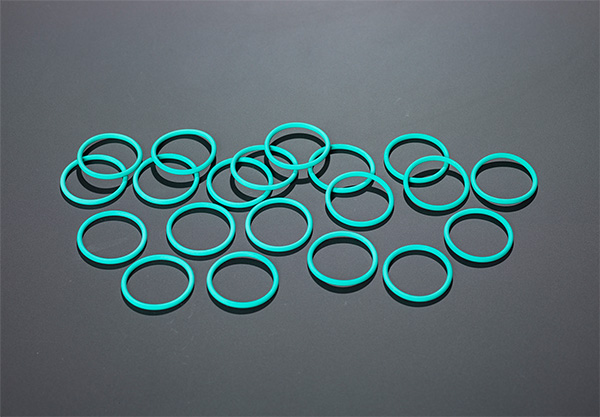FKM
What are FKM seals?
Fluoroelastomers offer excellent resistance to oils, fuels, mineral and synthetic lubricants, aliphatic and aromatic hydrocarbons, H2S and acidic conditions. Thermal and chemical resistance are a function of the fluorine level and the cure system (although an inappropriate compound can make the best elastomers mediocre). There are three basic families of fluoroelastomers:
- Dipolymer; containing two components.
- Terpolymer; with three components.
- Tetrapolymer; with four components.
Fluorine content ranges from 65% in dipolymers to over 70% in some tetrapolymers. Special grades are available that are resistant to low alcohols such as methanol.
Advantages:
- All FKM materials presented in this publication have been compounded to provide excellent resistance to rapid gas decompression (RGD).
Limitations:
- Limited resistance to steam, hot water and other polar fluids.
Temperature range: -60°C to +220°C (-76°F to +392°F).

SOLUTION
- FKM RGD
- FKM GLT
- FKM GLT RGD
- FKM RGD LOW TEMP.
ENVIRONMENTS:
- H2S
- CO2
- CHEMICAL RESISTANCE
- HIGH TEMPERATURE
- CRYOGENIC
| FKM | |||||||
|---|---|---|---|---|---|---|---|
| material | hardness ShA | operating temp. °C | tensile strength MPa | specific gravity g/cm3 | elongation % | certification | |
| FKM90 AED | 90 ± 5 | -20 °C /+220 °C (-4 / +428) | 15 | 1.861 | 140 | NORSOK M-710 | |
| FKM90 GLT AED | 90 ± 5 | -30 °C / +220 °C(-22 / +428) | ≥20 | ≥ 1.81+/-0.02 | ≥ 160 | NORSOK M-710 | |
| FKM90 GF AED | 90 ± 5 | -15 °C /+220 °C (+5 /+ 428) | 19,5 | 1,88+/-0,02 | 110 | NORSOK M-710 | |
| FKM90 AED low temp. | 90 ± 5 | -46 °C / +220 °C (-50.8 / +428) | ≥18 | 1,83+/-0,02 | ≥130 | NORSOK M-710 | |